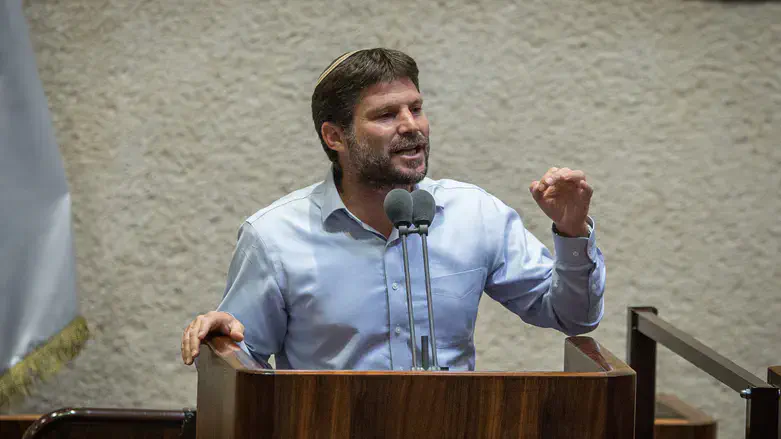
I find no comfort When I read that all the top brass agreed on a certain critical policy issue.
Instead, it causes me great concern,
Because it tells us that all the people sitting around the table have the same mindset.
And that's the absolutely wrong way to be sure that policy decisions are based on a thorough consideration of the matter.
Let's not forget that the top brass thought:
1. We could trade gizmos for the Golan with the idea that on "judgement day" we would race up the Golan and everything would be OK.
2. Leaving the Gaza Strip would improve our security.
And there are a lot more examples.
These days the brass and other security officials openly show their contempt for pesky questions from ministers and MKs who didn't serve as senior officers in the IDF.
They are joined by talking heads who ridicule these mere "civilians" for having the temerity to ask questions and the chutzpah to demand to seriously participate in the decision making process rather than attend formal meetings as part of an Amen choir.
But the truth is that Israeli civilians have frequently made better decisions than the brass on military matters.
Consider a few examples:
-Brass opposed building spy satellites:
Ehud Barak and others senior brass strongly opposed Israel building its own spy satellites - this even though it was already clear that the US could not be relied upon to fill the gap. Civilian Menachem Begin overruled the brass.
The brass only truly understood why this critical equipment was needed when the first satellite photograph flashed up on the screen.
-Brass opposed acquiring second strike capability:
Ehud Barak took the lead in quashing plans to purchase German subs featuring launch tubes with an extra large diameter for Jericho missiles. Israel only received this strategic capability when Germany supplied the first subs for FREE after German equipment played a key role in the Iraqi missile attacks against the Jewish State.
-Brass opposed opening the Second Lebanon War by destroying Hezbollah's long range missiles:
The brass wanted to first punish Lebanon by destroying infrastructure but civilian DM Amir Peretz insisted that the IAF take out the long range missiles before they began hitting Tel Aviv. This move was essentially the only correct Israeli decision in the entire war. To hear Peretz describe his battle with the brass in his own words: http://youtu.be/SM_LMb10qsQ .
-Civilian DM Liberman pushed through arming the IDF with precision ground to ground missiles of various ranges to dramatically enhance our ability to address many challenges without relying on piloted platforms. This included top of the line systems that Israel was already supplying to other armies but the local brass wasn't interested in.
And there are more examples.
In each case civilian "common sense" trumped decades of military training and experience.
Today the defense establishment is doing everything in its power to skirt around the military budget policy review committee which Minister of Finance Bezalel Smotrich insists meet before we lock a huge chunk of our defense budget on additional F-35s and other jets.
Is there a chance that Smotrich has something to contribute to defense related matters?
His critics note that Smotrich finessed his time in the hesder program to get a law degree when he was studying in yeshiva (there are midday breaks which most students use to rest) but this is proof of his abilities, although not necessarily a reflection on his skills today.
When Smotrich became minister of transportation no one expected him to come close to filling the boots of "Mr. Herod" - Yisrael Katz.
But it turned out that Smotrich was actually better at the job. And he was better in part because when he sat at a meeting he did not accept conventional wisdom and asked a lot of great questions no one in the room had thought about. Perhaps it is all those years of studying Talmud.
Thanks to the implementation of his thinking out of box, the pace of transportation infrastructure construction took off.
I don't know if he will have the same success studying defense matters.
But I do know that with all the challenges we are facing that it pays to have a civilian play a key role rather than just a fellow traveler of the Chief of the General Staff.
The same goes, of course for the very serious and critical decisions which the Jewish State is facing in the Gaza Strip, North and beyond.
I can appreciate how annoying it is for generals used to giving orders without getting flak find themselves having to deal with people who challenge their recommendations and ask uncomfortable questions.
But that is the benefit - not cost - of a democracy.
